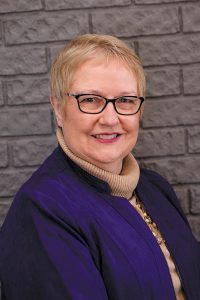December 4, 2024
Your Advocacy Connection

We Solve Long Term Care Problems
Why Spend Down Needlessly?
 By Gail Glockhoff-Long
By Gail Glockhoff-Long
GolderCare Solutions
Benefits Advocate
We hear from people all the time about how their helpful and well-intentioned attorney, social service agency, or nursing home staff gave them advise on how to spend down to qualify their loved one for Medicaid. My questions is – why spend down when you don’t have to?
Don’t get me wrong, there are times spending down is appropriate. We had a client a while back that was $200 over the limit, so she spent the extra loading up on her mother’s favorite brand of Depends.
But, if you are more than a few hundred dollars over asset, you have options other than spending down. For those not familiar with using Medicaid to pay for nursing home care, there are many requirements that must be met. For the person in care, the Iowa asset limit is $2000. In Illinois the limit is $17,500. A house and vehicle are exempt from the asset calculation. Bank accounts, retirement accounts, investments, life insurance, additional vehicles, and vacation homes all count in the asset limit total.
For a married person, in 2024 the community spouse is allowed to keep $129,084 in Illinois and $154,140 in Iowa. There is no penalty for transferring assets between spouses. However, if you transfer a $250,000 retirement account from the nursing home resident to the community spouse, you still do not qualify, because now the community spouse is over asset. If you apply for Medicaid benefits while you (or your community spouse) are over asset, depending on the state, you will either be denied or you will be approved with a medical spenddown. In a medical spenddown, the over asset amount can only be spent on medical expenses like the nursing home. The community spouse cannot use that money for a new roof or furnace for the house.
What the helpful attorney, social service agency, or nursing home staff did not tell you is that you have other options. Using the right techniques, an asset could be converted into a stream of income. Or part of the overage could be gifted, and another part used to pay the penalty for that gift. Or the overage could be gifted to a disabled child. Or the overage could be transferred to a non-disqualifying special needs trust. There are also options for life insurance that will preserve the death benefit that the community spouse may need to help support the rest of his/her life. Some techniques are appropriate for a single person, while others work best for a couple.
Any plan that would conserve assets beyond the advertised $2000 / $17,500 limits requires extensive knowledge of the Medicaid rules and adherence to the timing and order of steps in the process.
If you prefer to spend down to the asset limits, you still need a roadmap of how to do that correctly. The intrusive Medicaid approval process can look back at the last five years of your financial life. Did you gift a $10,000 car to your grandson for graduation two years ago? Did you help your daughter with a down payment on a house after her divorce four years ago? Did you pay a caregiver in cash, so there is no record of where that money went? Did you add your son’s name on your house deed last year? All of these innocent actions in your mind are considered gifts in the eyes of Medicaid and can potentially cause a disqualification. A roadmap plan helps guide you through the process to avoid spending down to the bare minimum and then finding out there is a penalty to pay before Medicaid starts paying. If you are down to your last $2000 and then find out that Medicaid will not start paying for 4 months due to a disqualifying transaction, what is your plan to pay the $40,000 of care before Medicaid starts paying?
Even those wanting to do the natural spenddown and not set aside a dime need a plan of action to avoid missteps. There are many creative ideas of how to spenddown extra assets to qualify for Medicaid. The best idea I have heard is to seek assistance from someone that offers more than just spenddown ideas. Talk with someone like GolderCare, who offers both an option to save assets for your community spouse who will need the assets to help pay for the rest of their life and guidance to safely spend down. You have options.
Gail is a Benefits Advocate with GolderCare and can be reached at 309-764-2273.
Filed Under: Family, Finance, Health & Wellness, Humor, Retirement
Trackback URL: https://www.50pluslife.com/2024/12/04/your-advocacy-connection-73/trackback/




